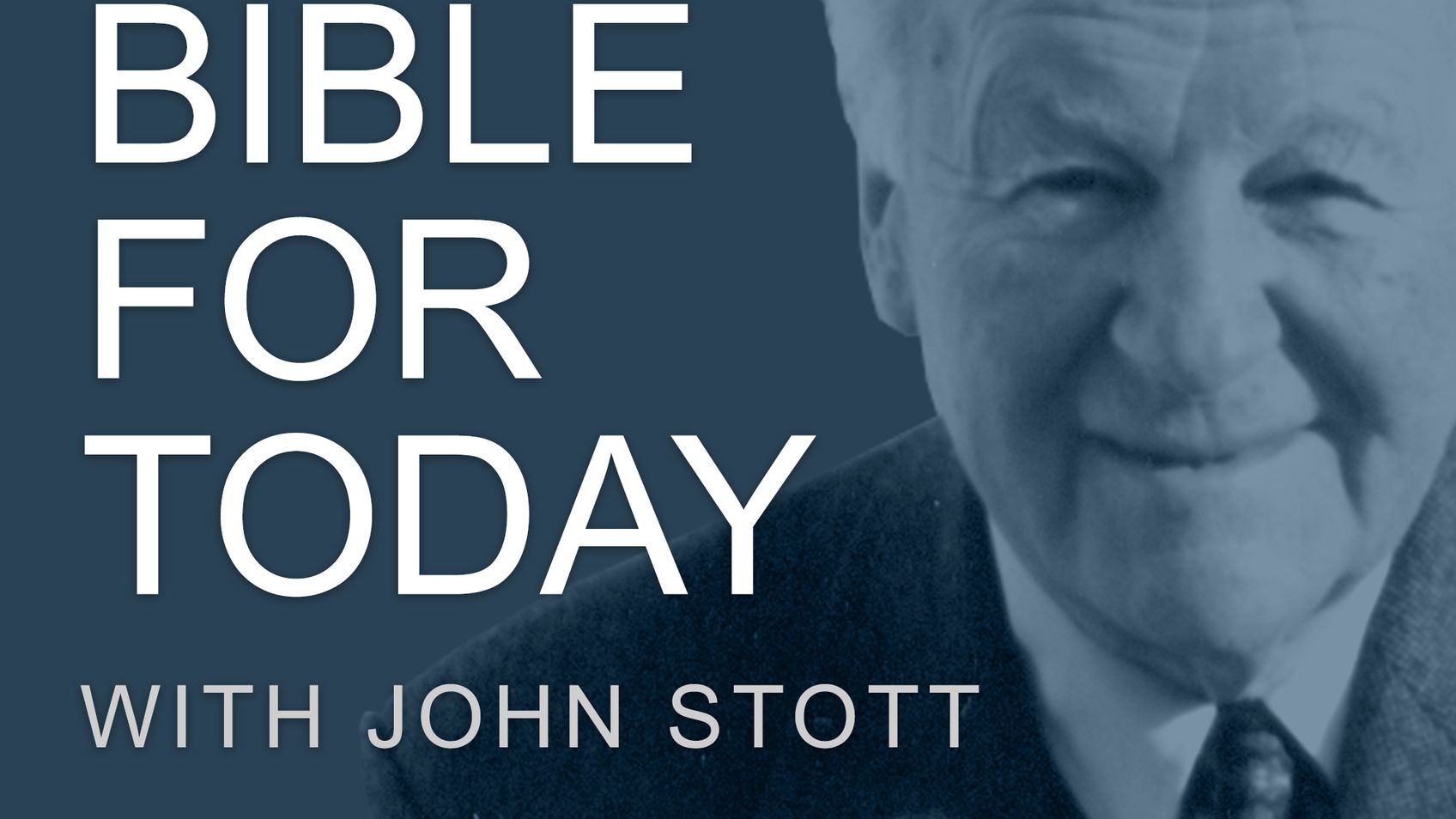The Spirit and the Bible - Part 1
April 25, 2021

The Bible for Today with John StottPremier
John Stott explains how the Bible came into existance and how God spoke to individual writers through the inspiration of the Holy Spirit. John Stott shows why the Holy Bible and the Holy Spirit are inseperable.
More From The Bible for Today with John Stott

The Spirit and the Bible - Part 2
The Bible for Today with John Stott
May 2, 2021
John Stott shows how that being faithful to the Bible can often result in the church facing opposition, and why we need to be steadfast in our belief

Marks of a Healthy Church - Part 1
The Bible for Today with John Stott
May 9, 2021
John Stott explains that while it is good to expect revival in the church, there are certain things that are necessary for this to happen. He shows th

Marks of a Healthy Church - Part 2
The Bible for Today with John Stott
May 16, 2021
John Stott shows how it is sometimes possible to avoid 'speaking truth to power' if it means receiving less opposition. He explains that there must be

Encounter With Jesus - Part 2
The Bible for Today with John Stott
April 18, 2021
John Stott shows us that there is a world of difference between knowing about Jesus and knowing Jesus personally, and how this can only happen by us o

Encounter With Jesus - Part 1
The Bible for Today with John Stott
April 11, 2021
John Stott explains that Christianity is not us being a slave to a belief or ethical system but the freedom that can only be found through faith and t

Peace With God - Part 2
The Bible for Today with John Stott
April 3, 2021
We can long for peace between nations, in our jobs, in our homes and in our relationships. But John Stott shows us that we will never be at peace with
More on OpenTheo

How Do I Determine Which Topics at Work Are Worth Commenting On?
#STRask
January 5, 2026
Questions about how to determine which topics at work are worth commenting on, and a good way to respond when you’re in a group Bible study and hear e

What Is Wrong with Wokeness? With Neil Shenvi
Life and Books and Everything
January 19, 2026
In this timely interview, Kevin talks to Neil Shenvi about his new book (co-authored with Pat Sawyer), entitled “Post Woke: Asserting a Biblical Visio

What Are Some Good Ways to Start a Conversation About God with Family Members?
#STRask
October 30, 2025
Questions about how to start a conversation about God with non-Christian family members, how to keep from becoming emotional when discussing faith iss

Protestants and Catholics: What’s the Difference? With Chad Van Dixhoorn, Blair Smith, and Mark McDowell
Life and Books and Everything
November 26, 2025
How should Protestants think about the Catholic Mass? About the Eucharist? About the history and development of the papacy? In this panel discussion,

Why Do We Say Someone Was Saved on a Particular Date If It Was Part of an Eternal Plan?
#STRask
November 24, 2025
Questions about why we say someone was saved on a particular date if it was part of an eternal plan, the Roman Catholic view of the gospel vs. the Bib

Shouldn’t I Be Praying for My Soul Rather Than for Material Things?
#STRask
February 2, 2026
Questions about whether we should be praying for our souls rather than for material things, why we need to pray about decisions, whether the devil can

Is It a Sin to Feel Let Down by God?
#STRask
November 6, 2025
Questions about whether it’s a sin to feel let down by God and whether it would be easier to have a personal relationship with a rock than with a God

Conservatism and Religious Freedom with John Wilsey
Life and Books and Everything
October 27, 2025
What is conservatism? And why does it go hand in hand with religious freedom? How should we think about the American experiment of ordered liberty? Ha

Why Does the Bible Teach You How to Be a Proper Slave Owner?
#STRask
November 13, 2025
Question about why it seems like the Bible teaches you how to be a proper slave owner rather than than saying, “Stop it. Give them freedom.”
* It s

Is 1 Corinthians 12:3 a Black-and-White Tool for Discernment?
#STRask
October 27, 2025
Questions about whether the claim in 1 Corinthians that “no one can say ‘Jesus is Lord’ except in the Holy Spirit” is a black-and-white tool for disce

How Do We Advocate for Christian Policy Without Making the Government Interfere in Every Area of Life?
#STRask
November 20, 2025
Questions about how to advocate for Christian policy without making the government interfere in every area of life, and the differences between the mo

What Do You Think About Churches Advertising on Social Media?
#STRask
January 19, 2026
Questions about whether there’s an issue with churches advertising on social media, whether it’s weird if we pray along with a YouTuber, and whether C

Can You Recommend Good Books with More In-Depth Information and Ideas?
#STRask
January 22, 2026
Questions about good books on Christian apologetics, philosophy, and theology with more in-depth information and ideas, and resources to help an intel

Could the Writers of Scripture Have Been Influenced by Their Fallen Nature?
#STRask
October 23, 2025
Questions about whether or not it’s reasonable to worry that some of our current doctrines were influenced by the fallen nature of the apostles, and h

Does Open-Mindedness Require Studying Other Religions Before Becoming a Christian?
#STRask
February 9, 2026
Questions about the claim that if Christians really want to be open-minded, they need to read and study other religions before committing to Christian
